Editor:
Brandon Sweet
University Communications
bulletin@uwaterloo.ca
John Hirdes, Robert Mann named University Professors
The University of Waterloo has announced that two faculty members have received the University Professor designation in 2022. Vice-President, Academic & Provost James Rush made the announced at this week's meeting of the University's Board of Governors.
Professor John Hirdes of Public Health Sciences and Professor Robert Mann of Physics and Astronomy are Waterloo's newest University Professors.
"The University of Waterloo owes much of its international reputation and stature to the quality of its eminent professors," Vice-President, Academic & Provost James Rush wrote in a report to the University of Waterloo's Board of Governors on April 5. "The University of Waterloo recognizes exceptional scholarly achievement and international pre-eminence through the designation “University Professor”. Once appointed, a faculty member retains the designation until retirement."
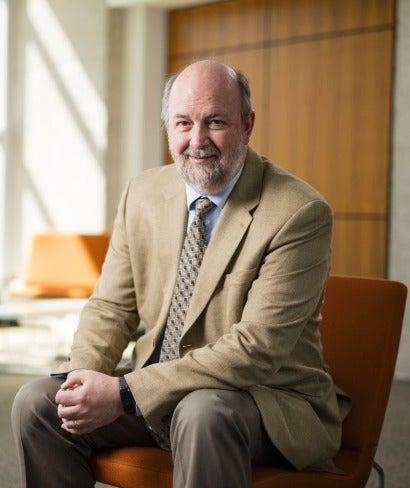
Professor John Hirdes is a member of the School of Public Health Sciences. His areas of interest include geriatric assessment, mental health, health care and service delivery, case mix systems, quality measurement, health information management, and quantitative research methods. Working as the senior Canadian Fellow and as a Board Member of interRAI, an international consortium of researchers from over 35 countries, Hirdes also chairs interRAI's International Network of Excellence in Mental Health and the interRAI Network of Canada. Professor Hirdes chaired the Committee on Student Mental Health (CoSMH).
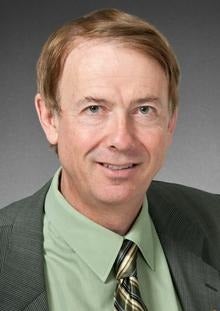
Professor Robert Mann is a member of the Physics and Astronomy department and works on gravitation, quantum physics, and the overlap between these two subjects. He is interested in questions that provide us with information about the foundations of physics, particularly those that could be tested by experiment.
Read the Physics and Astronomy department's announcement about Professor Mann.
Since 2004, Waterloo has awarded this distinction to 33 individuals. Such appointments are reported to Senate and the Board of Governors in March and April respectively, and are recognized at Convocation. The University Tenure & Promotion Committee acts as the selection committee and receives nominations annually from Faculty deans, directors of schools and department chairs, as well as from the University community.
A full list of University Professors is available on the Provost's website.
New interactive portal guides you through Waterloo's entrepreneurial ecosystem
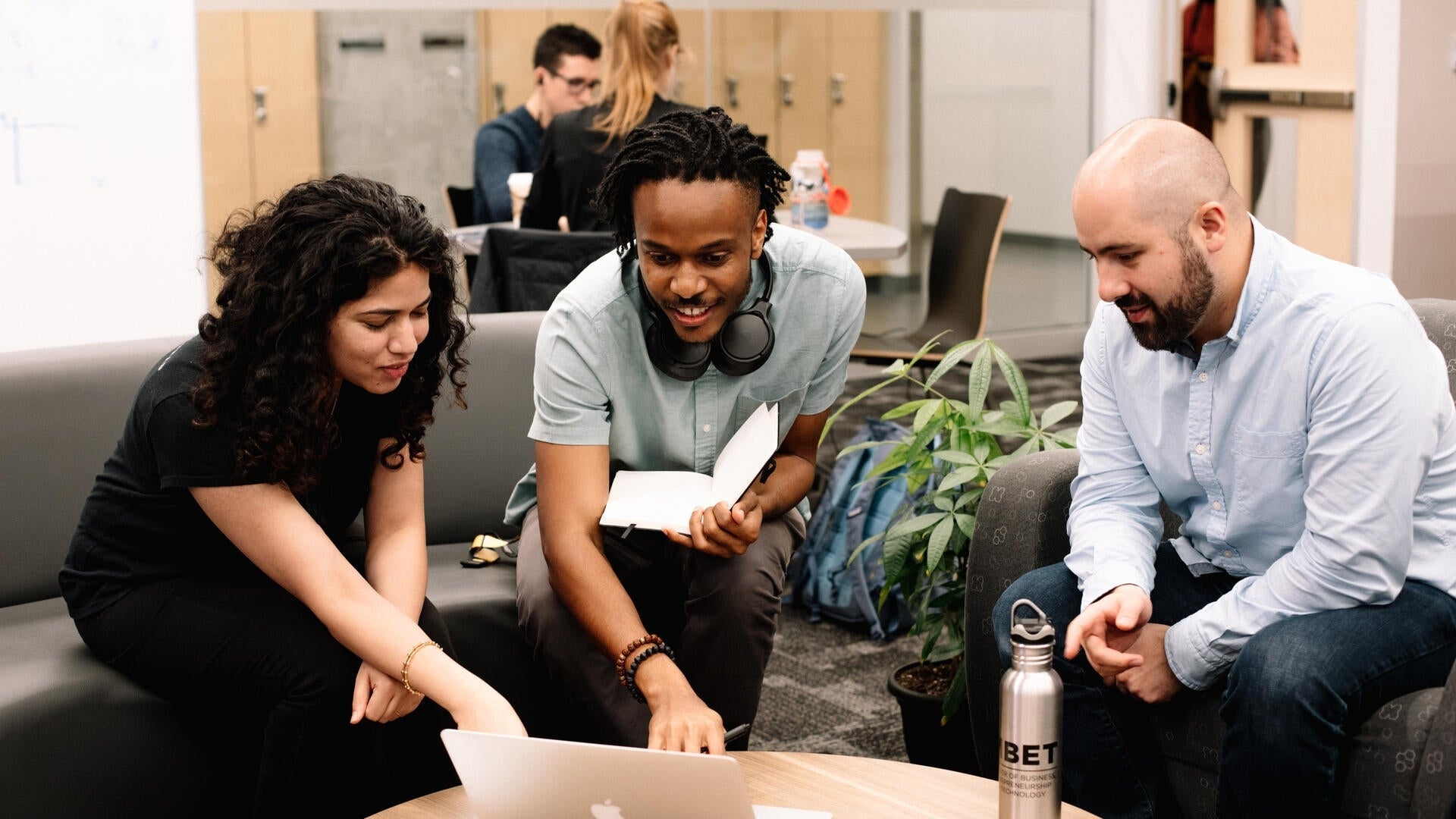
By Michelle Benevides. This article was originally published on Waterloo News.
The University of Waterloo brings together bold ideas and brilliant minds, landing it as the top university in the country for founders. As the entrepreneurial ecosystem at Waterloo continues to grow, creators and change-makers need a simple way to navigate the many resources and programs.
That’s why the University has updated its entrepreneurship website and launched a new microsite that hosts an interactive portal that allows users to easily explore more than 45 entrepreneurship programs, spaces and opportunities.
“Whether you’re a first-year student or graduate student, Waterloo’s innovation ecosystem has a program to suit anyone who wants to try entrepreneurship and learn to make an impact,” says John Dick, director of Velocity campus. “The new microsite is a dynamic map to help students navigate everything we have to offer.”
This robust ecosystem combines for-credit courses and programs for a wide range of builders and creators. There are hands-on experiences where students learn new skills to advance future careers as well as dedicated pathways to facilitate the commercialization of Waterloo’s world-class research.
Waterloo has programs for students and researchers, socially-minded problem solvers, environmentally-conscious builders, tech creators and underrepresented founders,” Dick says. The ecosystem also includes three incubators — Velocity, the Grebel Peace Incubator and GreenHouse social impact incubator. There is an entrepreneurship training program for Indigenous students and student-run programs like Zero, the Student Venture Fund and Hack the North, the largest hackathon in Canada.
Through its distinctive entrepreneurial framework, the University inspires industry leaders beyond the classroom to join Waterloo alumni who have founded more than 1,000 ventures and created more than 7,500 jobs.
“Entrepreneurial researchers and students are drawn to Waterloo because of our distinctive innovation ecosystem. As students, researchers and staff break new ground, the University will continue to evolve and find effective ways to support students during their time at Waterloo,” says Karim Sallaudin Karim, associate vice-president of commercialization and entrepreneurship at the University of Waterloo.
Visit the updated website and new microsite to see how the University is supporting leaders of the future who will grow a prosperous Canadian economy.
Keeping good company
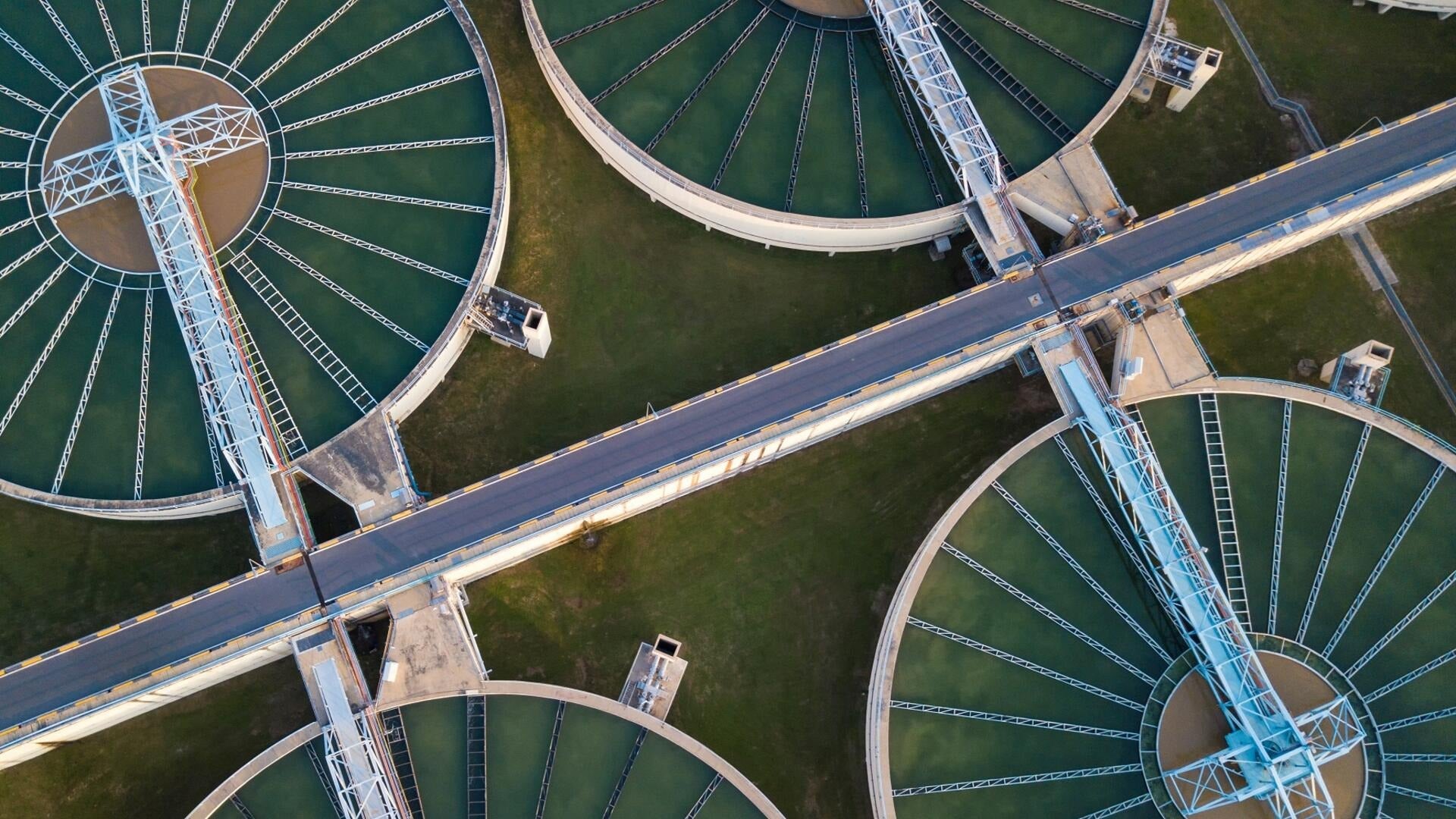
By Brian Caldwell. This article was originally published in Waterloo News.
A company that was co-founded by a Waterloo Engineering architecture alumnus is in elite company – for the second time – on a worldwide list announced this week by TIME magazine.
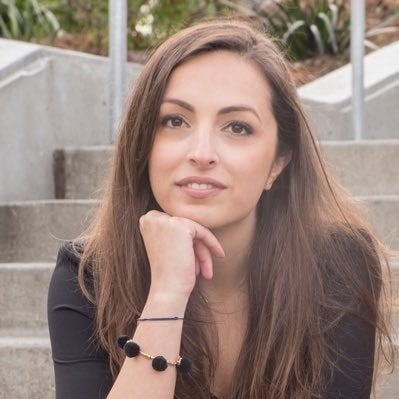
Biobot Analytics, a startup launched by Newsha Ghaeli (BAS ’11) and Mariana Matus in 2017, cracked the second annual TIME100 Most Influential Companies list for 2022 along with global giants such as Amazon, Meta, Apple, Disney, Netflix, the National Football League and TikTok.
Newsha Ghaeli is president and co-founder of Biobot Analytics.
Companies on the list were selected by TIME editors for “making an extraordinary impact around the world.” Criteria for selection included relevance, impact, innovation, leadership and success.
“Biobot’s mission has always been to make a positive impact in the field of public health, and we’re incredibly proud to be listed alongside so many innovative companies from all over the world,” Matus said in a media release.
Ghaeli, an urban studies researcher and the company president, met Matus, a biologist who serves as CEO, while they were both at the Massachusetts Institute of Technology.
Analyzing human waste
Biobot was the first company to analyze human waste on a commercial basis to provide data-driven insights for public health officials.
Its pioneering work, described by the company as “wastewater epidemiology,” has grown in both prominence and importance as a means to monitor COVID-19 levels and identify outbreaks in communities during the pandemic.
Biobots’ technology, which can also detect and track the presence of opioids and other substances, is now deployed at more than 700 sewage sites serving over 100 million people.
Student team reaches semi-finals in regenerative economic competition
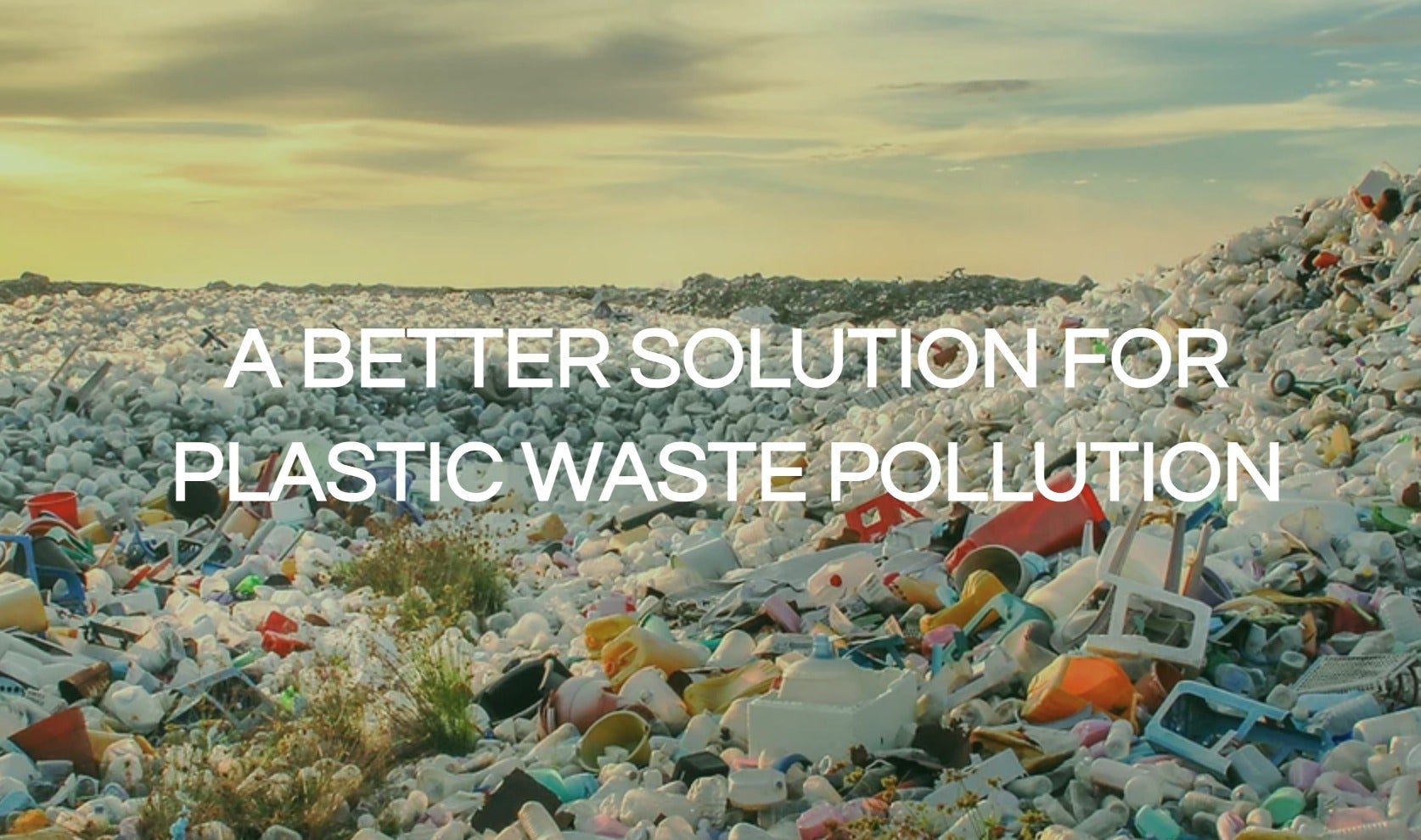
This article was originally featured on the Faculty of Engineering website.
An award-winning student project to reduce plastic waste has advanced to the semi-finals of the Wege Prize, a global competition for redesigning the way economies work.
Elijah Birley, a mechanical engineering student, Isabella Daneyko, a biomedical engineering student, and Carlton Darby, a chemical engineering student, are members of the Decomp team, which is developing an organic plastic waste disposal solution.
Their project uses proprietary plastic-degrading microbes to accelerate the degradation of plastics within weeks as compared to the hundreds of years it takes for plastics to naturally degrade.
It was selected as the Canadian winner of the 2021 Commission for Environmental Cooperation’s (CEC) Youth Innovation Challenge.
The Waterloo team, which also includes Isha Simon, a biology student, and Haya EL-Merheby, a student in the environment, resources and sustainability program, are among 15 shortlisted for the Wege Prize, an annual competition designed for post-secondary students to create regenerative solutions that have a widespread and lasting positive impact.
Other innovative student entries include mobile hydroelectric generators, agricultural waste captured to boost community health, and aquaponics systems that save water and boost biodiversity.
Link of the day
When and Where to get support
Students can visit the Student Success Office online for supports including academic development, international student resources, immigration consulting, leadership development, exchange and study abroad, and opportunities to get involved.
Instructors looking for targeted support for developing online components for blended learning courses, transitioning remote to fully online courses, revising current online courses, and more please visit Agile Development | Centre for Extended Learning | University of Waterloo (uwaterloo.ca).
Instructors can visit the Keep Learning website to get support on adapting their teaching and learning plans for an online environment.
Course templates are available within your course in LEARN to help you build and edit your content and assignment pages quickly.
The following workshops, webinars, and events are offered by the KL team (CTE, CEL, ITMS, LIB):
- Independent Remote Course Design Essentials, self-directed, continuous self-enrollment course in LEARN.
- Independent Blended Course Design (iBlend), self-directed, ongoing
- Copyright Overview for Waterloo Instructors and Staff - self-directed, continuous self-enrollment course in LEARN.
Supports are available for employees returning to campus. Visit IST’s Hybrid Work and Technology guidelines and workplace protocols to assist with the transition.
The Writing and Communication Centre has virtual services and programs to help undergrads, grad students, postdocs and faculty members with academic writing.
- Meet with writing advisors in one-to-one appointments to brainstorm, draft, revise, and polish. No time for an appointment? Try email tutoring for undergrads.
- Beat isolation and make writing progress at weekly Virtual Writing Cafés for grad students and faculty or PJ-Friendly Writing Groups for Undergrads.
- Take an online workshop or apply to our popular Dissertation Boot Camp program.
- Faculty can request custom in-class workshops for their courses, or the WCC can facilitate any existing workshops for student groups.
- Course-integrated support available. Attention faculty and instructors: The application form for Writing and Communication Centre course-integrated support is now available online. We offer five unique support streams for your courses including synchronous and asynchronous workshops and monitored discussion boards.
Co-op students can get help finding a job and find supports to successfully work remotely, develop new skills, access wellness and career information, and contact a co-op or career advisor.
The Centre for Career Action (CCA) has services and programs to support undergrads, grad students, postdocs, alumni, and employees in figuring out what they value, what they’re good at, and how to access meaningful work, co-op, volunteer, or graduate/professional school opportunities. Questions about CCA's services? Live chat, call 519-888-4047, or stop by our front desk in the Tatham Centre 8:30 a.m. to 4:30 p.m., Monday to Friday.
Drop-in to Warrior Virtual Study Halls on Wednesdays from 5:30 p.m. to 7:00 p.m. Come together in this virtual space to set goals and work independently or in groups each week.
Renison's English Language Institute continues to offer virtual events and workshops to help students practice their English language skills.
If you feel overwhelmed or anxious and need to talk to somebody, please contact the University’s Campus Wellness services, either Health Services or Counselling Services. You can also contact the University's Centre for Mental Health Research and Treatment. Good2Talk is a post-secondary student helpline available to all students.
The Library is open with expanded hours for access to book stacks, drop-in individual study space, bookable group study rooms, drop-in access to computers and printers, book pick-up services and IST Help Desk support. Librarian consultations, Special Collections & Archives and the Geospatial Centre are available by appointment. Full details on current services and hours are available on the Library’s COVID-19 Update webpage.
The Faculty Association of the University of Waterloo (FAUW) continues to advocate for its members. Check out the FAUW blog for more information.
The University of Waterloo Staff Association (UWSA) continues to advocate for its members. Check out the UWSA blog for more information.
The Sexual Violence Prevention and Response Office (SVPRO) supports all members of the University of Waterloo campus community who have experienced, or been impacted, by sexual violence. This includes all students, staff, faculty and visitors on the main campus, the satellite campuses, and at the affiliated and federated Waterloo Institutes and Colleges. For support, email: svpro@uwaterloo.ca or visit the SVPRO website.
The Office of Indigenous Relations is a central hub that provides guidance, support, and resources to all Indigenous and non-Indigenous campus community members and oversees the University's Indigenization strategy.
The Waterloo Indigenous Student Centre, based at St. Paul’s University College, provides support and resources for Indigenous students, and educational outreach programs for the broader community, including lectures, and events.
WUSA supports for students:
Peer support - MATES, Glow Centre, RAISE, Women’s Centre - Visit https://wusa.ca/peersupport to book an appointment either in person or online for the Fall term.
Food Support Service food hampers are currently available from the Turnkey Desk 24/7 in the Student Life Centre. Drop off locations are also open again in SLC, DC, DP, SCH and all residences.
Co-op Connection all available online. Check https://wusa.ca for more details.
Centre for Academic Policy Support - CAPS is here to assist Waterloo undergraduates throughout their experience in navigating academic policy in the instances of filing petitions, grievances and appeals. Please contact them at caps@wusa.ca. More information is available.
WUSA Student Legal Protection Program - Seeking legal counsel can be intimidating, especially if it’s your first time facing a legal issue. The legal assistance helpline provides quick access to legal advice in any area of law, including criminal. Just call 1-833-202-4571.
Empower Me is a confidential mental health and wellness service that connects students with qualified counsellors 24/7. They can be reached at 1-833-628-5589.
GSA-UW supports for graduate students:
The Graduate Student Association (GSA-UW) supports students’ academic and social experience and promotes their well-being.
Advising and Support - The GSA advises graduate students experiencing challenges and can help with navigating university policies & filing a grievance, appeal, or petition.
Mental Health covered by the Health Plan - The GSA Health Plan now has an 80 per cent coverage rate (up to $800/year) for Mental Health Practitioners. Your plan includes coverage for psychologists, registered social workers, psychotherapists, and clinical counselors.
Dental Care - The GSA Dental Plan covers 60 to 70 per cent of your dental costs and by visiting dental professionals who are members of the Studentcare Networks, you can receive an additional 20 to 30 per cent coverage.
Student Legal Protection Program - Your GSA fees give you access to unlimited legal advice, accessible via a toll-free helpline: +1-833-202-4571. This advice covers topics including housing disputes, employment disputes, and disputes with an academic institution.
The Graduate House: Open Monday to Friday 11:30 a.m. to 6:00 p.m. We’re open to all students, faculty, staff, and community members. The Graduate House is a community space run by the GSA-UW. Vaccination Records and Government ID continue to be required for all dine-in guests. Graduate students who paid their fees can get discounts and free coffee.
When and Where (but mostly when)
Warriors vs. Laurier Blood Donation Battle. Join our “Waterloo Warriors” team on the Blood.ca website or app. #ItsInYouToGive
Warriors truLOCAL Kickback Program, March 22 to April 22. Purchase high quality locally sourced meat and fish while supporting your favourite Waterloo Warriors varsity team. Find out more.
14th annual Waterloo Staff Conference, Wednesday, April 6 and Thursday, April 7.
Pre-exam study days, Wednesday, April 6 and Thursday, April 7.
Pivot-RP training webinar for Faculty and graduate students, Thursday, April 7, 2:00 p.m. to 3:00 p.m. via MS Teams. Please register to attend.
CrySP Speaker Series on Privacy featuring Smith Oduro-Marfo, University of Victoria, “Surveillance for Development? Implications of Surveillance-oriented Citizen Identification Systems in Global South countries,” Friday, April 8, 1:00 p.m. Join on Zoom.
Warrior Rec Free Exam Fitness, Monday, April 11 to April 22. Yoga, Zumba, Spin, Barre, Warrior Workout and more. Valid Warrior Rec Membership Required. Find out more.
Information session: Robbins-Ollivier Award for Excellence in Equity, Monday, April 11, 1:30 to 2:30 p.m., MS Teams. Please register to receive a link.